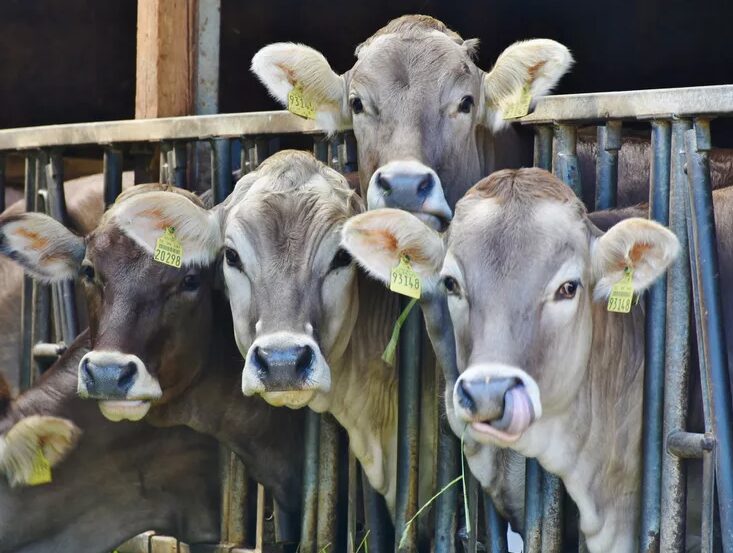The chances of avian flu spreading to the population, according to state health officials, remain low following the diagnosis of a fourth human case in the United States last week in a farm worker in northeastern Colorado.
That case marked the state’s first this year connected to the spread of the H5N1 strain of highly pathogenic avian influenza, also called bird flu, from dairy cattle to humans. The case was reported after an adult man working on a farm in northeast part of the state came down with pink eye; he has since recovered.
In the last 30 days, Colorado cattle accounted for just under 48% of confirmed cases in the country, per data from the U.S. Department of Agriculture. Twenty-seven herds in Colorado have a confirmed case. That is the second most in the entire country. Twenty-three of those cases came in the last month.
Olga Robak, spokeswoman for the Colorado Department of Agriculture, said the state has 105 licensed dairy herds consisting of approximately 200,000 dairy cows. One farm has closed since the beginning of the outbreak, though the closure was not related to avian flu. CONSUMER REPORTS
Colorado confirms human case of bird flu
“CDA has been doing active outreach to Colorado’s dairy industry to impress upon them the need for monitoring cattle for symptoms, reporting any possible clinical signs of HPAI, and not moving cattle to avoid giving the virus an opportunity to spread. This educational approach helps producers understand the importance of symptom reporting, isolation of sick animals, and maintenance of rigorous biosecurity practices,” Robak said in a statement.
According to Sasha Geffen of the Colorado Department of Public Health and Environment’s Division of Disease Control and Public Health Response, the greatest, direct exposures occur in people who are routinely exposed to infected animals.
He added, “The general public should avoid contact with sick birds or other animals. If one has to do so, it is very important to use personal protective equipment, including gloves, eye protection, and N95 respirators.”
People should drink pasteurized milk, wherein the process kills the dangerous bacteria and viruses. It is also safe to consume properly handled and truly cooked beef and poultry.
Colorado Gov. Jared Polis verbally declared a disaster emergency Friday specifically to support a commercial poultry facility in Weld County that experienced an outbreak. That declaration authorizes the Office of Emergency Management to take necessary measures to assist with response, recovery and mitigation.
The last time someone from Colorado was actually diagnosed with the bird flu was in 2022, which came as the result of infected poultry.
The three other human cases reported this year include two dairy farm workers in Michigan and one in Texas. Two of the cases developed pink eye, and one, one of the patients in Michigan, developed mild symptoms of a respiratory illness.
Since the outbreak began last January, more than 97 million poultry across 48 states have been confirmed to have the H5N1, according to the Centers for Disease Control and Prevention.
Anyone working with dairy cows and either becoming ill or feeling like they might have contracted avian flu should contact the CDPHE at 303-692-2700 (or 303-370-9395 after hours) for a flu test and medicine (if needed).

